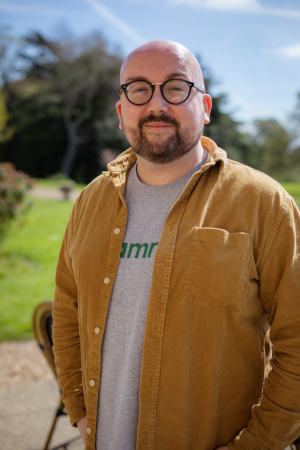Summer Series Blog – Jamie Kinlochan BEM
 Welcome to the Summer Series of blogs, where thinkers and experts give their views on colleges in Scotland and on what the future may hold. The views expressed are the views of the author. Jamie Kinlochan BEM is a commentator, writer and facilitator. Enjoy Blog 3.
Welcome to the Summer Series of blogs, where thinkers and experts give their views on colleges in Scotland and on what the future may hold. The views expressed are the views of the author. Jamie Kinlochan BEM is a commentator, writer and facilitator. Enjoy Blog 3.
There are over 300,000 enrolements in Scotland’s colleges each year.
I find it exciting to think about what has brought each of those people to sign up to a course. Are they investing in themselves while at work, picking up new skills part time? Are they taking on a full-time qualification that will help turn a passion into a job? Are they looking for new ways to shape their future, studying in a supportive environment while they work things out?
For me, college was an opportunity to find myself again. I arrived at my first day hopeful but with the weight of the world on my shoulders.
At sixteen, I had an unsuccessful attempt at university. One of the youngest in my year, I got the qualifications that I needed to take up a course in London. If only there was a way to know that moving to London with no wealth, no experience of learning outside of high school and no family history of university wouldn’t work out.
I was home by Christmas, and carried the shame that comes with feeling like a drop out who had let people down. I had convinced myself that I was fine with working and taking life as it comes, until I saw an advert for a college that encouraged people who had been out of education for a while to think about coming back.
When I was accepted onto the HNC Radio course at City of Glasgow College, I found a supportive learning environment that stretched my abilities every day. I used state of the art equipment to make programmes, got feedback from students and lecturers that made me better at my craft and even learned the science behind those dreadful but memorable radio ad jingles.
Bolstered by the confidence that I gained from my HNC, I went on to a degree at the University of the West of Scotland. Now, fifteen years after my first day at college, I’m finishing up a Masters at the University of Strathclyde.
The limitless potential of college to change people’s lives is why it is important to address the barriers that many of us face to accessing education. I had neither the self-belief or the money required to make going back to college easy – others will find different challenges placed between them and their future.
Research from the National Union of Students Scotland has shown that good quality, affordable housing; access to mental health services and financial support would mean more students getting to graduation. Meaning our broken housing market, cost of living crisis and mental health waiting times are preventing people’s potential being unlocked.
Recognising that barriers exist has even led to colleges creating programmes so that everyone has the chance to learn.
At West Lothian College, the TRUST Project is making the justice system more effective. With a mix of individualised education programmes, pastoral care and development of their workforce, the college is tapping into the interests and potential contributions of people who are involved or at risk of becoming involved in the justice system. They are strengthening their community by ensuring that people’s talents aren’t lost.
At Glasgow Kelvin College, a partnership with Action for Children’s STAY programme is helping young people with experience of care deal with barriers. Recognising that good relationships outside of the classroom can our ability to learn, the project provides mentoring support for young people who need help with money, housing and work.
And at West College Scotland in Paisley, the Learning Development Team is helping students understand that they belong in their community. Taking on a raised bed at the Barshaw Park Communuity Garden, the students have been growing their own fruit, vegetables and flowers – all while covering the key learning outcome of building their confidence and independence.
We are all better off because of the work that goes on in colleges to break down barriers and deliver high quality learning.
When we take our car to the garage for its MOT, it’s likely that the person responsible for keeping us safe on the road trained at a college. When we go out for dinner to celebrate a family milestone, chances are that our food was prepared by someone who learned their skills at a college. And when we pick up our phones to do any of the million and one things we use our it for, somewhere in there will be the work of a person who qualified in computing at a college.
How else might we thrive if colleges were resourced and supported more?
When the First Minister took office, he said that he wanted a fresh start and that his government would prioritise equality, opportunity and community.
Colleges should be the first stop in understanding how turn these laudable aims into a reality.


